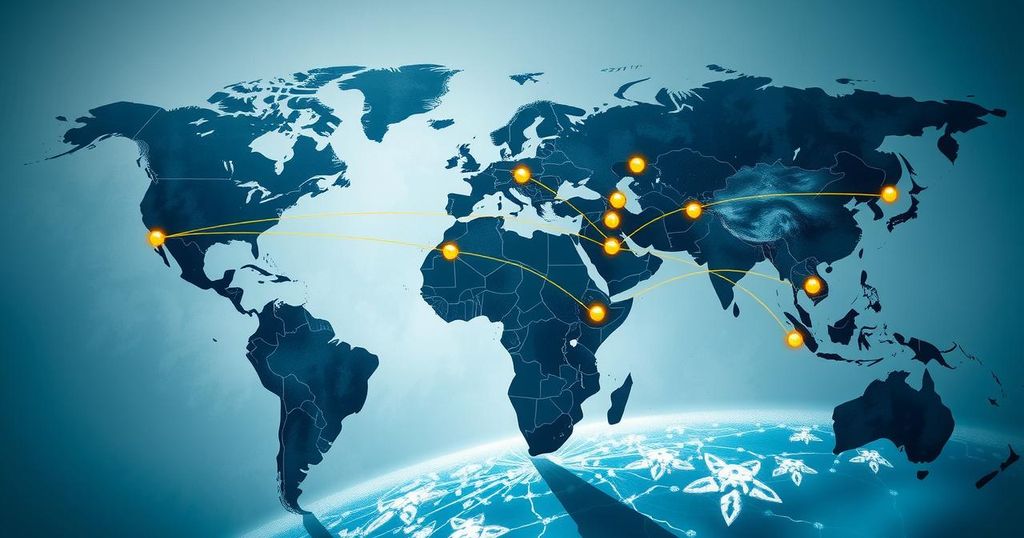President Trump’s freeze on foreign aid may weaken U.S. global influence while granting China a strategic opening to expand its presence. Critics argue that U.S. actions could diminish goodwill and reliable partnerships, allowing China to benefit from the vacuum created by America’s retreat. The disparities in foreign assistance strategies may redefine international alliances in development aid.
The freeze on foreign aid announced by President Donald Trump raises concerns that it could grant China an opportunity to expand its influence globally. Trump’s approach, marked by an ‘America First’ strategy, includes dismantling key foreign assistance programs, which critics believe undermines U.S. soft power and could diminish America’s historical role in fostering global goodwill and security alliances.
With China increasing its foreign aid, such as a $4.4 million contribution to demining efforts in Cambodia while the U.S. halts a comparable grant, the disparity between the two nations’ foreign assistance strategies is glaring. National security adviser Mike Waltz, however, discounts this narrative, asserting that existing U.S. programs often do not align with strategic interests toward China.
Experts express varied opinions on the ramifications of the U.S. aid freeze. Some, like Senator Andy Kim, worry that America’s retreat allows China to fill the void without competition. Conversely, others argue that U.S. influence encompasses military might and financial power, and therefore, China’s potential to step into this space remains uncertain.
Despite the aid freeze, it’s argued that relationships and goodwill outweigh financial aid itself. AidData’s analyst Samantha Custer emphasizes that countries are scrutinizing U.S. foreign engagement and questioning its reliability as a partner. This sentiment could favor China as it positions itself as a dependable alternative to those seeking less politically charged investment opportunities.
The U.S. has historically been the primary provider of international development assistance, averaging about $61 billion annually over the past two decades, which positions it to influence global development projects differently than China’s debt-centric model. Such dynamics suggest that while U.S. foreign aid decreases, it risks losing goodwill and strategic partnerships essential for enhancing its global position.
President Trump’s foreign aid freeze risks enabling China to increase its global influence, particularly through its model of development assistance. As the U.S. steps back, experts warn that this could affect its reputation and reliability as a partner, allowing China to emerge as a favorable alternative. The ultimate consequences hinge on how the U.S. re-evaluates its foreign aid strategies and engages with the international community moving forward.
Original Source: apnews.com






